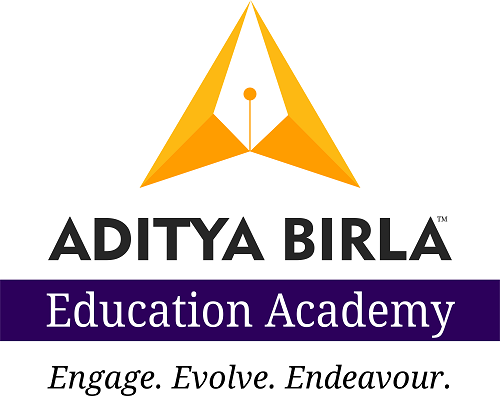Thankfully, we’re living in the fourth industrial revolution, where technologies and automation are changing the world, as we know it. Healthcare, education, business, communications, governance – all are being positively influenced by this revolution. It is an age when the internet of things (IoT), quantum computing, blockchain, nanotechnology, biotechnology, artificial intelligence, robotics, self-driving cars and so many other unbelievable innovations are becoming an integral part of our lives.
However, the fourth industrial revolution would never have been possible without the paradigm shift at a global level to knowledge-sharing economies and vice-versa. Both have gone hand-in-hand, and are incomplete without the other.
In this exciting digital age where the world is, metaphorically speaking, becoming flat again, knowledge-sharing and previously impossible collaborations are the key to evolution and progress.
Simply put, knowledge-sharing is a process through which information, skills and expertise are shared. And knowledge-sharing economies rely on the use of shared ideas and the application of technologies to promote economic and social growth.
During the second half of the 20th century, the disparity between the developed and the developing countries was enormous in every respect. Over the last decade or so, however, the internet and the social media have changed things drastically and dramatically. In fact, the social media has actually become the voice of people. As knowledge and information are being pooled enthusiastically and dispersed freely, overcoming distances, boundaries and differences in cultures, incredible technological developments, increasing awareness, far-reaching social exchanges and sweeping social reforms are ushering in a new era of human existence. We are slowly-but-surely becoming a unified global community.
The difference has come with the fact that tacit knowledge (knowledge that can’t be written down, visualised or verbalised easily for communication as opposed to codified knowledge) can now be easily transmitted. For example, if you wish to understand what emotional intelligence is or learn meditation techniques or understand how a new innovation works – a simple YouTube video can get you started. Earlier, you needed extensive personal interaction to achieve it.
However, the chasm is still a wide one. Developing countries that are not making a conscious effort to transform into knowledge-sharing economies are lagging behind, escalating the disparities between them and the developed economies.
An extreme example of this is North Korea that remains cut off from the world due to the near-blanket restriction on the internet and the sharing of information with the world. This has isolated North Korea and deprived it from becoming a part of the global community.
To succeed in this increasingly competitive global economy, developing nations must fast-track towards an advanced information and communications-technology infrastructure, a well-trained and educated workforce, robust research programmes, cutting-edge innovation programmes and a political-cum-social will to achieve it.
At the same time, we must not forget that wide-spread digital knowledge-sharing has given rise to cyber-attacks on individuals, data thefts, privacy issues and increasing social divides in some aspects, along with hate-mongering and cyber-bullying on the social media. This is where we must exercise caution. The growing beast of technology needs to be controlled with discerning foresight and prudence.
As far as India is concerned, since liberalisation and the end of the license raj in 1991, sweeping economic reforms and large-scale industrialisation have ensured that the country, an emerging superpower, is among the top 10 industrial nations in the world today. Industrialisation has given us self-sufficiency instead of having to rely on expensive imports. Low-cost indigenous production has made previously unattainable goods affordable for the common man. It has helped modernise agriculture and improve crop yields significantly. It has led to a rapid development of transportation networks and created jobs for skilled and semi -skilled workers, resulting in better standards of living for them. But conversely, industrialisation has also resulted in mass migration from rural to urban areas, environmental issues and exploitation of natural resources. There has also been economic exploitation of the people, along with social and cultural stagnation. Large-scale heavy industries have resulted in the decline of the cottage industry, rendering many skilled workers unemployed. The industrial economy also gave rise to crony capitalism where resources, power and money remained in the hands of the influential few.
But times are definitely changing. Today, the vision of digital India is well underway. Inexpensive nationwide internet services and data plans, active interaction with the world by way of the social media, amalgamation of global businesses and their organisational systems into the fabric of the Indian work culture and a revolution for change spearheaded by the youth is advancing this transition by leaps and bounds.
Growing digital literacy has opened a world of opportunities for people. It is creating fantastic and previously unimagined jobs and career prospects. It is establishing viable new channels for knowledge acquisition. Today, you can acquire technical know-how, a new skill and even a degree from the comfort of your home by way of an online programme. Even our education system is aiming be on par with global standards, as we homogenise the process by which our educators can become the best knowledge-givers they can be.
The spirit of micro-entrepreneurs has been bolstered as a variety of new-age platforms are helping innovative ideas become a reality. New products are discovering new markets without necessarily involving a middleman. Online shopping, easy deliveries across distances, on-demand transportation platforms, home-stay holiday options and crowd-funding have jump-started the economic boom of smaller towns and villages.
Resources are being use better. There is social and entrepreneurial mobility. Flexibility with working hours and environments is helping people find their own niche.
Environmental issues are now at the forefront of our thinking and policy-making processes and we have begun to take concrete steps for preservation of our planet.
Most importantly, there is greater transparency and accountability in the way we operate on the professional and personal front vis-à-vis our role in society. All across the world, the #MeTooMovement, for example, is bringing feminism’s age-old fight against dogmas, abuse and discrimination to the forefront and how!
India is truly en route to becoming a fully integrated knowledge-sharing economy. We’re genuinely uniting as ‘one nation’ in our thoughts, actions and rationales. This new-age India surely has a proud and pivotal role to play in the knowledge-sharing future of the global community.
Article link
Image source-Google







